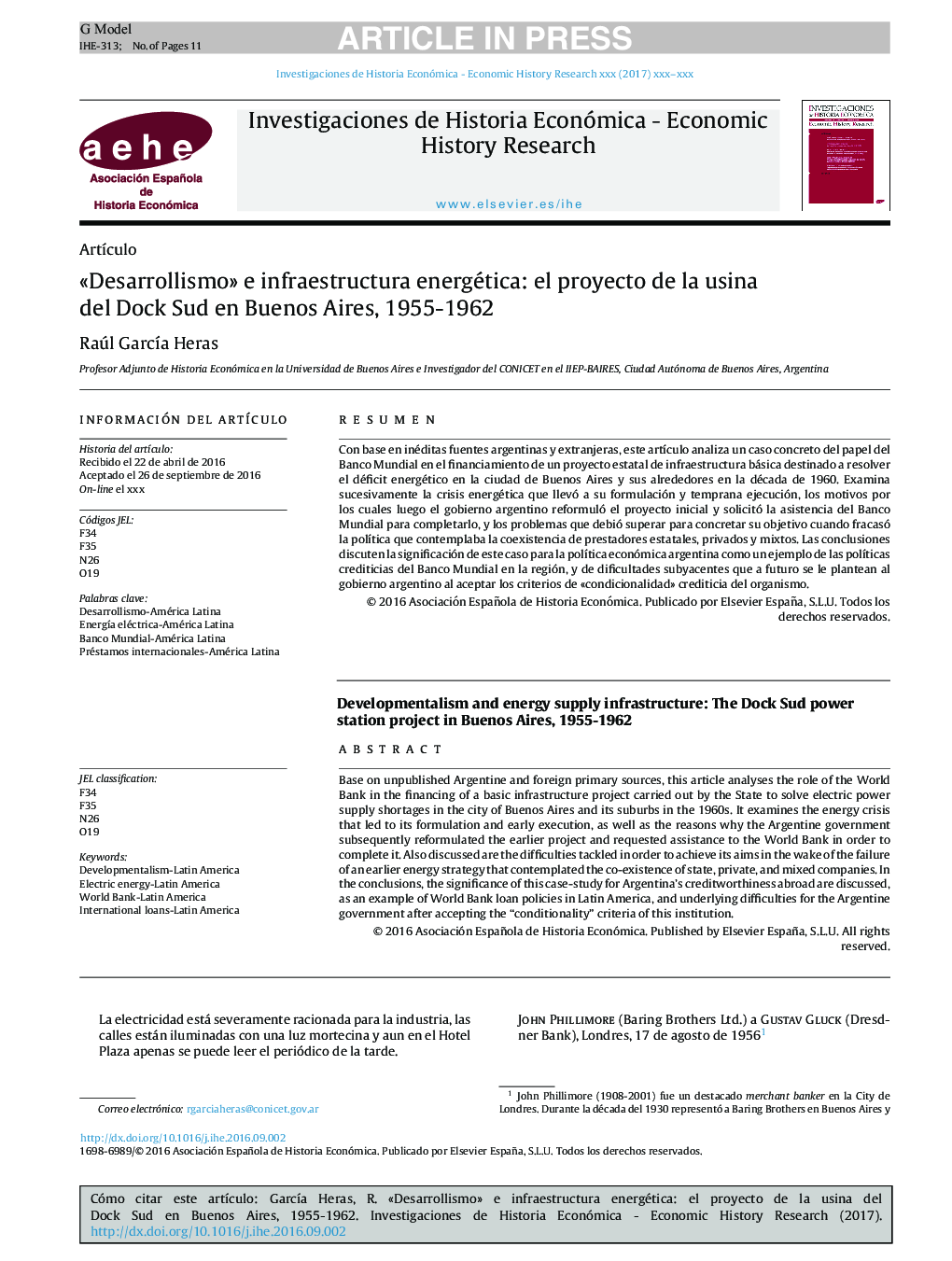| Article ID | Journal | Published Year | Pages | File Type |
|---|---|---|---|---|
| 7551525 | Investigaciones de Historia Económica - Economic History Research | 2018 | 11 Pages |
Abstract
Based on unpublished Argentine and foreign primary sources, this article analyses the role of the World Bank in the financing of a basic infrastructure project carried out by the State to solve electric power supply shortages in the city of Buenos Aires and its suburbs in the 1960s. It examines the energy crisis that led to its formulation and early execution, as well as the reasons why the Argentine government subsequently reformulated the earlier project and requested assistance to the World Bank in order to complete it. Also discussed are the difficulties tackled in order to achieve its aims in the wake of the failure of an earlier energy strategy that contemplated the co-existence of state, private, and mixed companies. In the conclusions, the significance of this case-study for Argentina's creditworthiness abroad are discussed, as an example of World Bank loan policies in Latin America, and underlying difficulties for the Argentine government after accepting the “conditionality” criteria of this institution.
Related Topics
Social Sciences and Humanities
Arts and Humanities
History
Authors
Raúl GarcÃa Heras,
